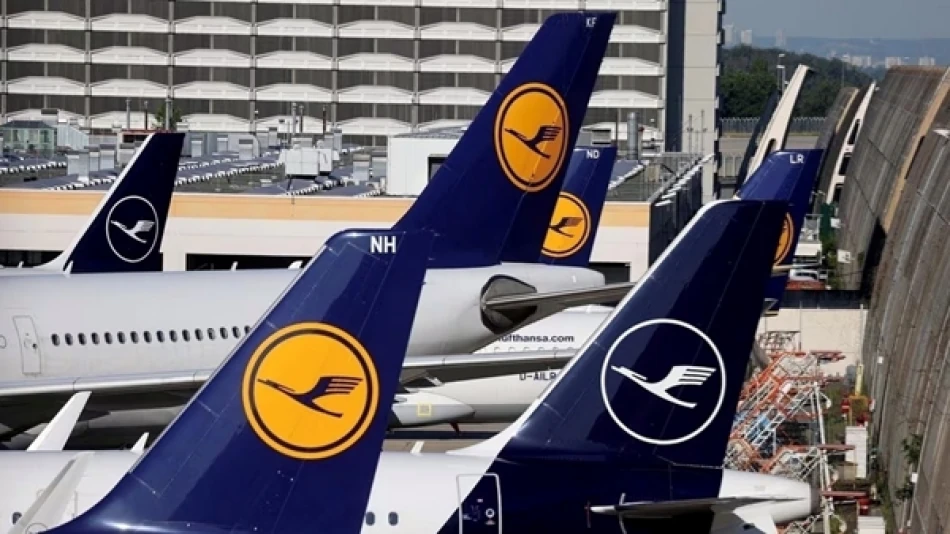
Impending Lufthansa Strikes Threaten Airline's Future Flights
Lufthansa Faces Fresh Pilot Strike Threat Over Failed Pension Negotiations
German airline giant Lufthansa is bracing for another potential pilot strike after negotiations over pension reforms collapsed, with the pilots' union Cockpit calling for strike authorization votes. The dispute centers on retirement benefit changes that shifted financial risks from the airline to its 4,800 pilots, highlighting broader tensions in Europe's aviation labor market as carriers struggle to balance post-pandemic recovery with employee demands.
Union Declares Negotiation Breakdown
The German pilots' union Cockpit announced that talks with Lufthansa management had reached an impasse, specifically over pension systems and transitional retirement plans. In a letter to union members, negotiators requested leadership approval to begin strike authorization procedures, though no timeline for potential industrial action has been established.
The union claims Lufthansa has failed to present any substantive offer during discussions that began in May 2024. A company spokesperson countered that Lufthansa had not yet received formal notification of the negotiation failure and could not comment on the union's claims.
The 2017 Pension Deal That Started It All
The current dispute traces back to a controversial 2017 wage agreement that fundamentally altered Lufthansa's pension obligations. Under that deal, pilots accepted significant changes to their retirement benefits in exchange for other concessions:
Key Changes Implemented
The airline stopped guaranteeing absolute pension values, shifting to a model where only employer contributions are guaranteed. This change transferred interest rate and investment risks directly to employees. Additionally, the average early retirement age for transitional pensions was raised by two years to 60.
Reports suggest the pension fund returns have fallen short of projections made during the 2017 negotiations, creating the current tension between pilots and management.
Broader Industry Context
Lufthansa's pension dispute reflects wider challenges facing European airlines as they navigate post-pandemic recovery while managing labor costs. Unlike carriers in the United States, where pilot shortages have driven significant wage increases, European airlines face different pressures from established unions with strong collective bargaining traditions.
The timing is particularly sensitive for Lufthansa, which is still recovering from COVID-19 losses while competing with low-cost carriers and Middle Eastern airlines. The company's financial constraints limit its flexibility in pension negotiations, especially when dealing with defined benefit obligations that could impact its balance sheet for decades.
Market and Operational Implications
A pilot strike at Lufthansa would have immediate consequences for European air travel, potentially disrupting thousands of flights across the airline's extensive network. The 2022 one-day pilot strike demonstrated the union's ability to ground operations, though the financial impact was limited due to the brief duration.
For investors, the pension dispute signals ongoing labor cost pressures that could affect Lufthansa's profitability margins. Airlines globally are grappling with similar pension obligations, but European carriers face particular challenges due to aging workforces and mature markets with limited growth potential.
Strategic Stakes Beyond Pensions
The pension negotiations occur against a backdrop of broader organizational tensions within the Lufthansa Group. The company operates multiple subsidiary airlines across Germany, and labor agreements at the main carrier often set precedents for these smaller operations.
Resolution of the pension dispute could influence similar negotiations at other European airlines, where pilots are closely watching Lufthansa's approach to retirement benefits. The outcome may establish whether airlines can successfully shift pension risks to employees or if unions can force carriers to maintain traditional defined benefit structures.
Most Viewed News

 Layla Al Mansoori
Layla Al Mansoori






